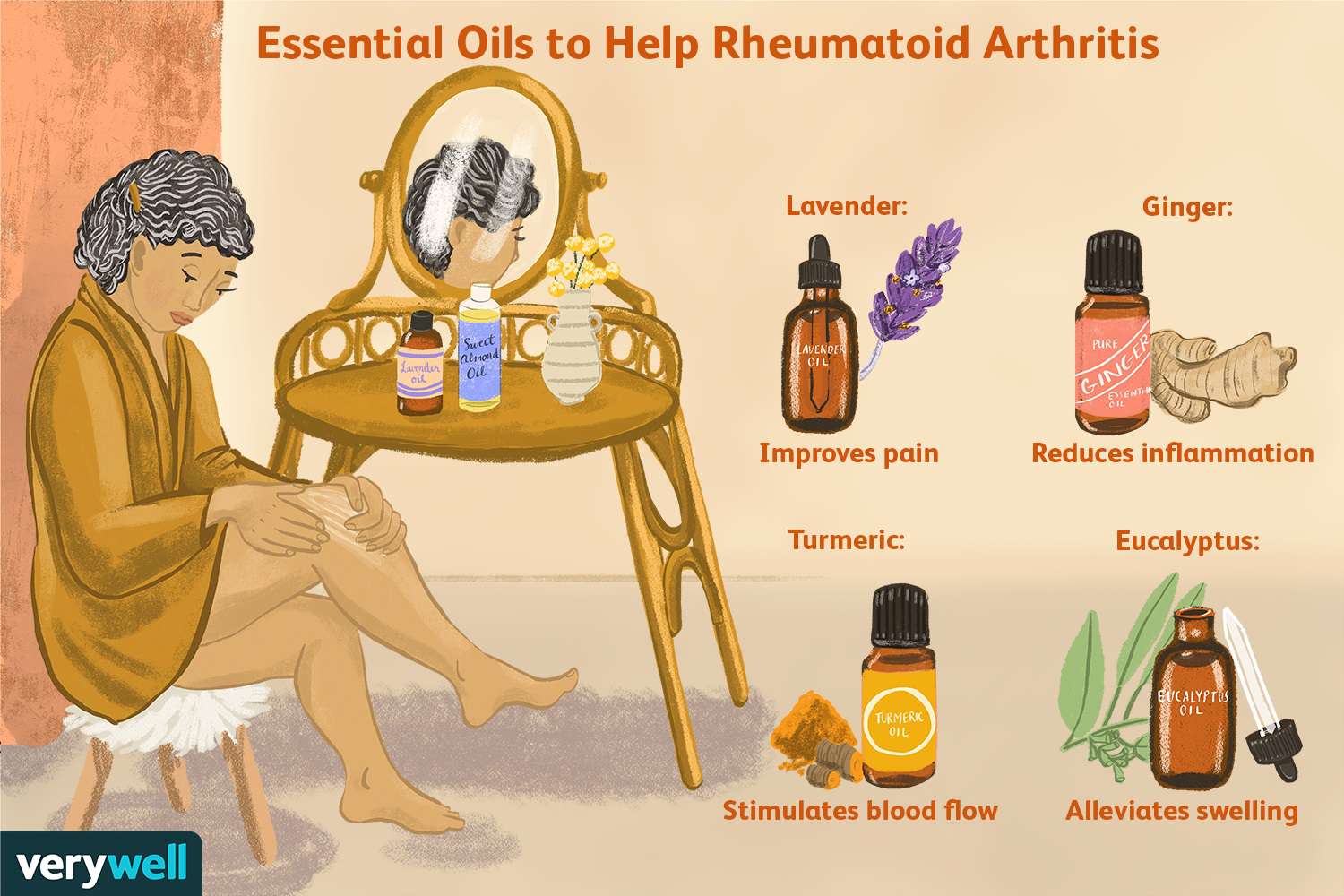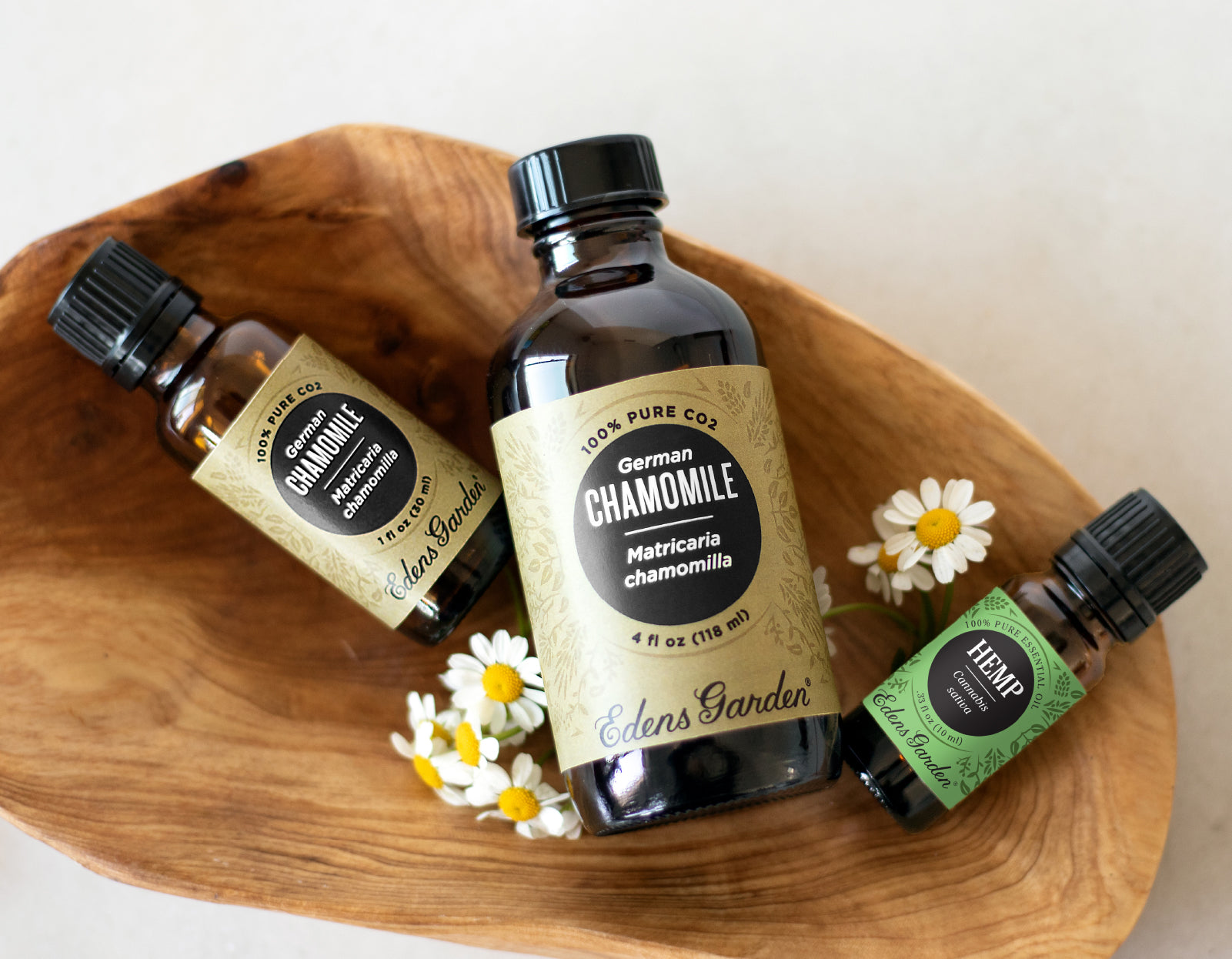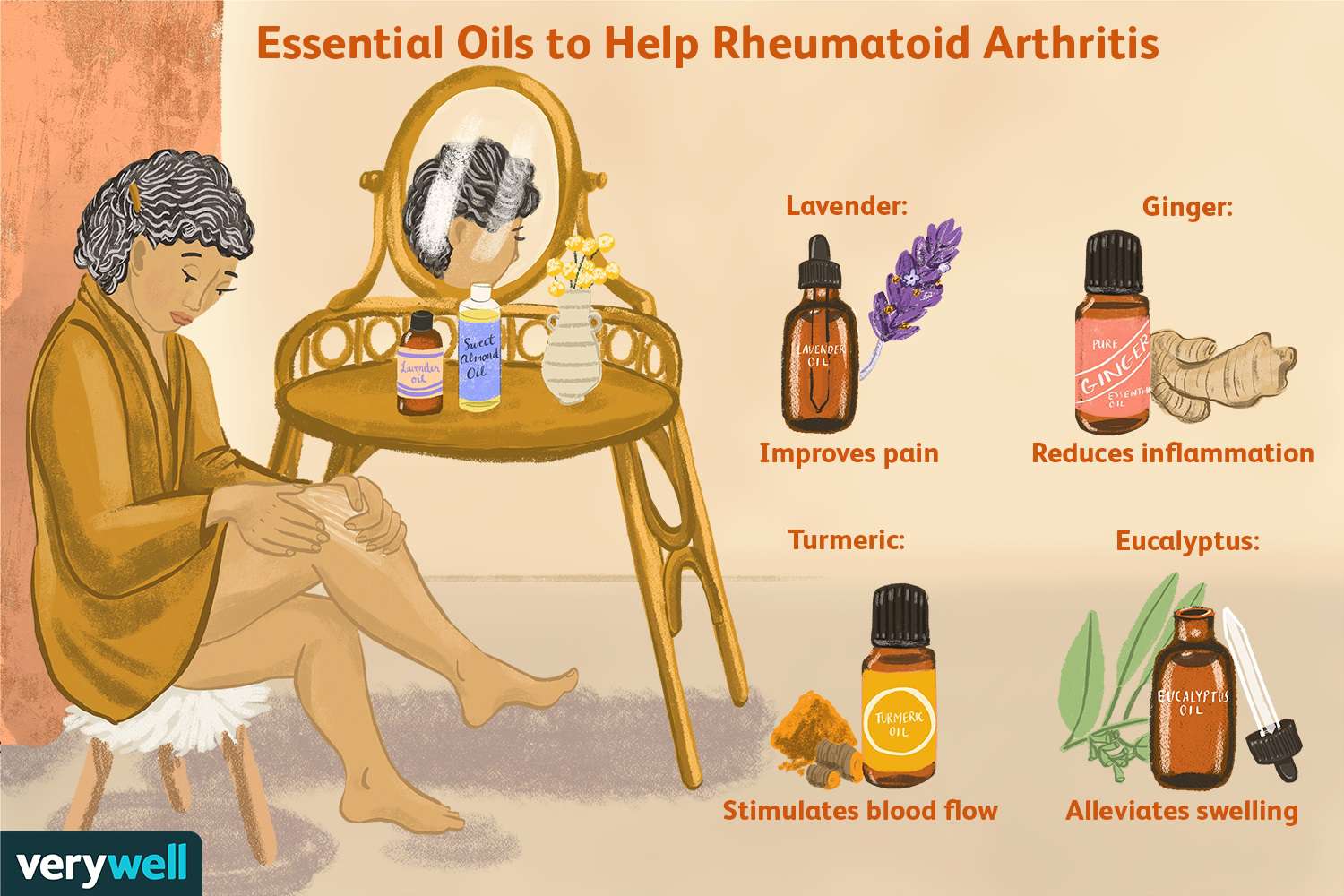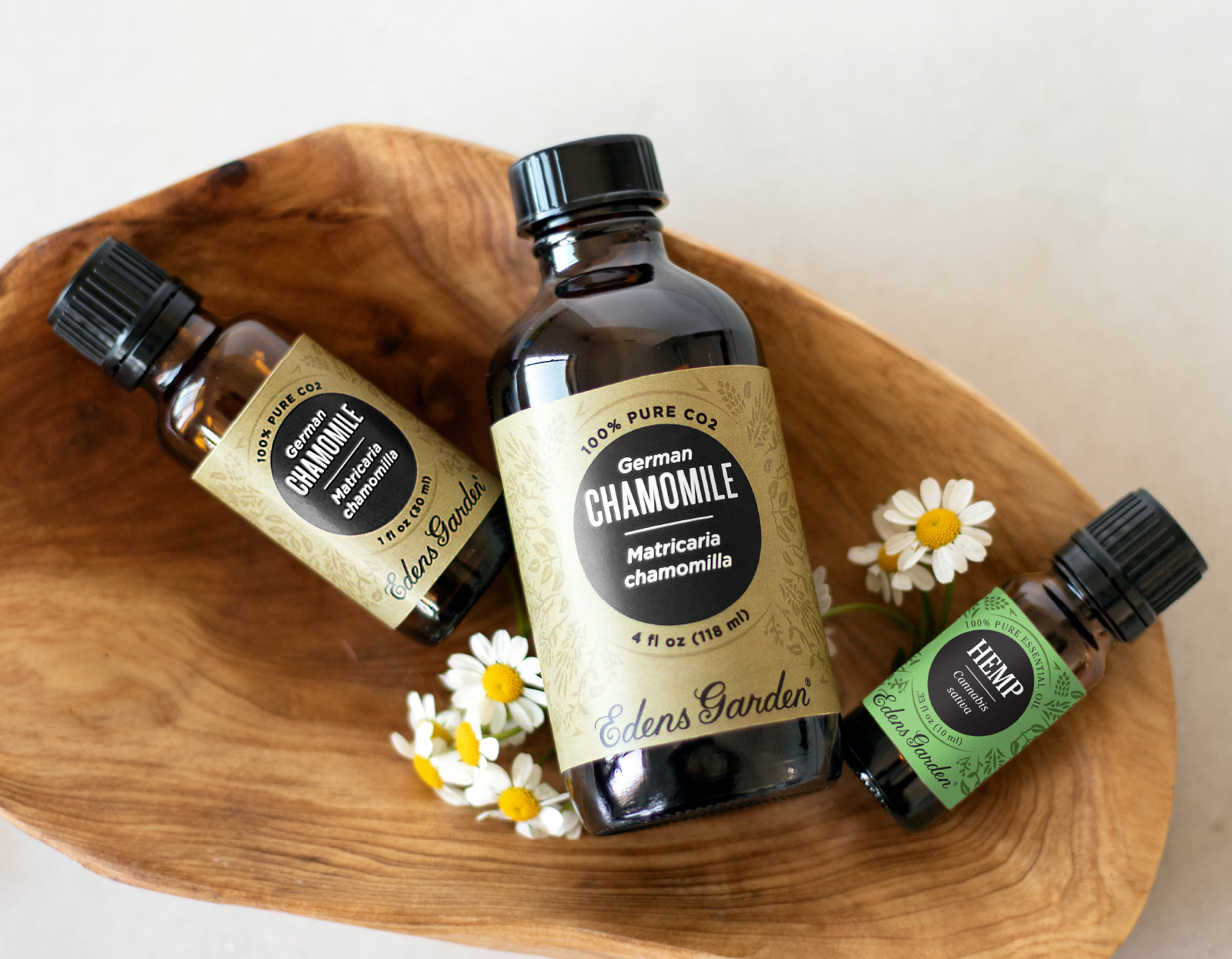To use essential oils for inflammation, mix a few drops with a carrier oil and apply directly to the affected area or use a diffuser for inhalation. Essential oils can help reduce inflammation and promote healing.
Inflammation is a natural response by the body to protect itself from infections, injuries, or other harmful stimuli. However, chronic inflammation can lead to various health issues like arthritis, asthma, and inflammatory bowel disease. While there are medications available to alleviate inflammation, more people are turning to natural remedies like essential oils for their anti-inflammatory properties.
Essential oils are concentrated plant extracts that have been used for centuries for their therapeutic benefits. We will explore how to properly use essential oils for inflammation and discuss some popular options to consider.
How Essential Oils Can Aid In Reducing Inflammation
Essential oils have shown promise in reducing inflammation due to their anti-inflammatory properties. These oils can be used in a variety of ways to aid in managing inflammation in the body. Some popular options include lavender, peppermint, and tea tree oil, which have been found to have beneficial effects.
Lavender oil, for example, has been shown to reduce inflammation and pain when applied topically. Peppermint oil can help alleviate pain and inflammation when used in a massage oil or applied directly to the affected area. Tea tree oil is another essential oil that has been touted for its anti-inflammatory benefits, particularly in relieving skin inflammation.
By understanding the benefits of essential oils and exploring different options, individuals can effectively incorporate these natural remedies into their routine for managing inflammation.
Essential Oils For Inflammatory Conditions
Essential oils offer natural relief for inflammatory conditions like joint pain and sore muscles. These oils can soothe inflammation and provide comfort. For joint pain, oils like peppermint and eucalyptus can offer a cooling sensation and reduce discomfort. Additionally, lavender and chamomile essential oils can help relax muscles and relieve tension.
When it comes to skin inflammation, tea tree oil has antiseptic properties that can cleanse and alleviate irritation. Moreover, frankincense and rosemary oils have anti-inflammatory properties that can promote skin healing. These essential oils provide a holistic approach to managing inflammation, without relying on chemical-laden products.
Simply dilute a few drops of the chosen oil in a carrier oil and apply it topically or use it in a diffuser for aromatherapy benefits. With the therapeutic properties of essential oils, you can experience natural relief from inflammation.
How To Use Essential Oils For Inflammation
Using essential oils for inflammation can be beneficial for your overall well-being. Topical application techniques are often used to maximize their effectiveness. By applying essential oils directly onto the affected area, you can experience targeted relief. Additionally, inhalation methods can complement the anti-inflammatory properties of essential oils.
Diffusing them in the air or using a steam inhalation can help reduce inflammation in the respiratory system. Lastly, incorporating essential oils into your daily routine can provide long-term relief from inflammation. You can add a few drops to your bath water, apply them to your skin after showering, or mix them into a carrier oil for a soothing massage.
Remember to choose high-quality, pure essential oils to ensure their effectiveness.
Safety Considerations For Using Essential Oils
Safety is a crucial factor to consider when using essential oils for inflammation. One important consideration is dilution guidelines to avoid skin sensitization. In order to prevent any adverse reactions, it is important to dilute essential oils before applying them topically.
Additionally, certain individuals such as children, pregnant women, and those with specific health conditions should take extra precautions when using essential oils. It is advisable to consult with a healthcare professional prior to use. Proper storage and handling of essential oils is also important to ensure their potency and effectiveness.
Keep them in a cool, dark place to maintain their therapeutic properties. By following these safety considerations, you can enjoy the benefits of essential oils for inflammation without any unwanted side effects.
Blending Essential Oils For Inflammation
Essential oils can be effectively used to reduce inflammation by creating blends that work synergistically. These blends combine the healing properties of various oils to provide targeted relief. It is crucial to understand the importance of carrier oils in diluting the essential oils, as they help in safe application.
Mixing different essential oils in specific ratios creates powerful blends that address different types of inflammation, such as joint pain, muscle soreness, or skin irritation. By carefully selecting and blending the right oils, you can create recipes that offer effective relief for specific areas of concern.
Using essential oils for inflammation is a natural and holistic approach that can provide soothing and rejuvenating effects for your body. So, explore the world of essential oils and discover the wonders they can do for your inflammation-related struggles.
Essential Oils For Specific Inflammatory Conditions
Using essential oils can help alleviate inflammation caused by conditions such as arthritis and joint pain. These oils have anti-inflammatory properties that can soothe discomfort and promote healing. When it comes to respiratory conditions, essential oils are also effective in reducing inflammation and helping with breathing difficulties.
Whether it’s eczema or psoriasis, essential oils provide relief for various skin conditions by reducing inflammation and soothing irritation. By incorporating these oils into your daily routine, you can address specific inflammatory conditions naturally and improve your overall well-being. Soothe inflammation with essential oils today and experience the benefits for yourself.
Lifestyle Factors That Can Support The Use Of Essential Oils For Inflammation
Lifestyle factors play a crucial role in supporting the use of essential oils for inflammation. Stress management techniques, such as meditation and yoga, can help reduce inflammation. Additionally, incorporating a proper diet and nutrition plan can further aid in managing inflammation.
By consuming anti-inflammatory foods and avoiding processed and sugary items, you can support the healing process. Exercise is another valuable lifestyle factor that complements the benefits of essential oils in reducing inflammation. Engaging in regular physical activity helps improve blood circulation and reduce inflammation throughout the body.
By incorporating stress management techniques, following a healthy diet, and engaging in exercise, you can optimize the benefits of essential oils for managing inflammation effectively.
Enhancing The Effects Of Essential Oils For Inflammation
Enhancing the effects of essential oils for inflammation involves combining them with alternative therapies. One way to optimize relief is by using specific massage techniques. These techniques work in tandem with the anti-inflammatory benefits of essential oils. By applying the oils with soothing strokes and gentle pressure, the healing properties are absorbed deeply into the affected areas.
Another way to enhance the effects is by creating a calming and soothing atmosphere. By using diffusers or adding a few drops of essential oil to a warm bath, the therapeutic benefits can be maximized. Essential oils have the power to reduce inflammation naturally, and by incorporating alternative therapies and creating the right environment, their effectiveness can be further elevated.
Discover the full potential of essential oils for inflammation relief and enjoy the soothing benefits they offer.
:max_bytes(150000):strip_icc()/essential-oils-for-rheumatoid-arthritis-5090691-v1-10f45b6f770d4e34ad82df9e0d1e7bb6.jpg)
Credit: www.verywellhealth.com
Frequently Asked Questions On How To Use Essential Oils For Inflammation
What Oils Are The Most Anti-Inflammatory?
The most anti-inflammatory oils include fish oil, flaxseed oil, olive oil, and coconut oil.
How To Use Essential Oils For Joint Pain And Inflammation?
To use essential oils for joint pain and inflammation, apply a few drops onto the affected area and gently massage.
What Is The Most Powerful Natural Anti-Inflammatory?
Turmeric is considered the most potent natural anti-inflammatory, reducing inflammation and promoting overall health.
How Do You Use Essential Oils For Pain Relief?
Essential oils provide pain relief by applying directly to the affected area or inhaling the aroma.
Conclusion
Using essential oils for inflammation can be a natural and effective way to manage and reduce inflammation in the body. These powerful oils have been used for centuries in traditional medicine for their healing properties. By harnessing the anti-inflammatory benefits of essential oils such as lavender, chamomile, and eucalyptus, you can target specific areas of inflammation and experience relief.
Additionally, essential oils can be used topically, inhaled, or ingested depending on the oil and your desired method of application. Remember to always dilute essential oils properly and consult with a healthcare professional before incorporating them into your routine. Whether you are dealing with arthritis, muscle soreness, or a chronic inflammatory condition, essential oils can provide a natural alternative to conventional treatment options.
Embrace the power of nature and discover the soothing and anti-inflammatory properties of essential oils for your health and wellness journey.









